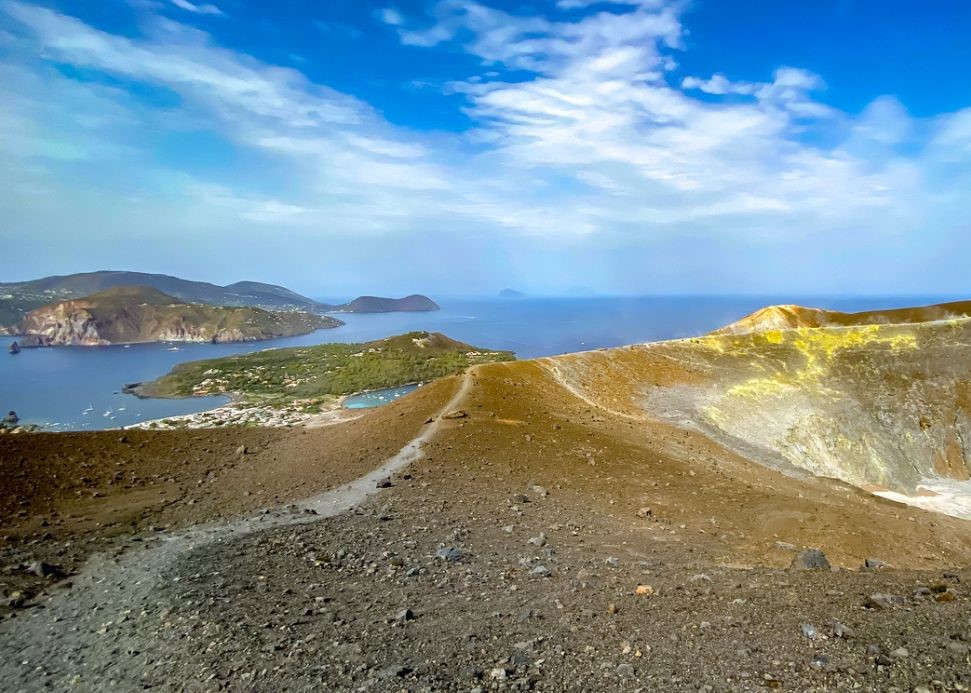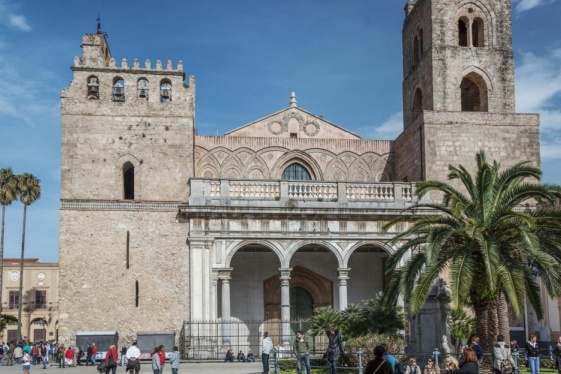

The island of Vulcano is part of the Aeolian archipelago in Sicily and is making headlines these days for an important discovery made by some American scientists. It would have been identified here, in fact, a bacterium capable of quickly cleaning the atmosphere of carbon dioxide.
Vulcano is an area with an ancient history around which myths and legends have been built. The island, which had made tourism its strong point in recent years, was the focus of the Italian media a few days ago because of concerns expressed by local businessmen.
Excursions to the summit of the volcano, in fact, have been banned as well as the mud lake has been closed: the island's two major tourist attractions are uninhabitable, which is why the tourist season may not start this year.
These days, however, Vulcano is also in the international headlines for a sensational discovery made by experts from Harvard Medical School during a mission subsidized by the American company Seed Health. Seed Health is a California company founded in 2015 and has always been at the forefront of probiotic development so much so that its goal is "to use bacteria to improve human and environmental health."
During a mission to Vulcan, the university's scientists long observed and studied a particular microbe that belongs to the family of "cyanobacteria," which are single-celled organisms that mainly inhabit aquatic environments. Cyanobacteria are believed to be bio-building organisms, as their photosynthetic activity removes CO2 from the environment. The special cyanobacterium was first found in September 2022 by Americans in a hot spring of volcanic origin found here on the island and very rich in carbon dioxide. The lengthy analysis performed by experts led to the discovery that this microbe has an above-average photosynthesis capacity. This means that this organism is able to extract carbon from CO2 molecules at a truly extraordinary rate, greater than that of any other cyanobacterium.
You may be interested
-
'Phantom Limb': A Conversation With Dennis...
Dennis Palumbo is a thriller writer and psychotherapist in private practice. He's the auth...
-
Arnaldo Trabucco, celebrated medical practit...
Arnaldo Trabucco, MD, FACS is a leading urologist who received his medical training at ins...
-
Davide Gambino è il miglior "Young Italian F...
Si intitola Pietra Pesante, ed è il miglior giovane documentario italiano, a detta della N...
-
Exciting Palatine. Interview with Clementina...
You can tell she fills with excitement when she has the chance to show an important archae...
-
ISSNAF medical imaging science chapter meeti...
AGENDA 12.00 – 12.15 Light lunch12.15 – 12.30Welcome addresses Lorenzo Mannelli, MD, PhD...
-
Italian American Culture Night
Tuesday, April 14 - 6.30 pm EDTSt. James Church Rocky Hill - 767 Elm St, Rocky Hill,...
-
Italy, the importance of innovation for agri...
by Claudia Astarita The food farming sector is still one of the engines of Italia...
-
'A beacon of hope': Sicily’s enduring North A...
On a late summer evening in the Sicilian seaside village of San Vito Lo Capo, Anna Grazian...










